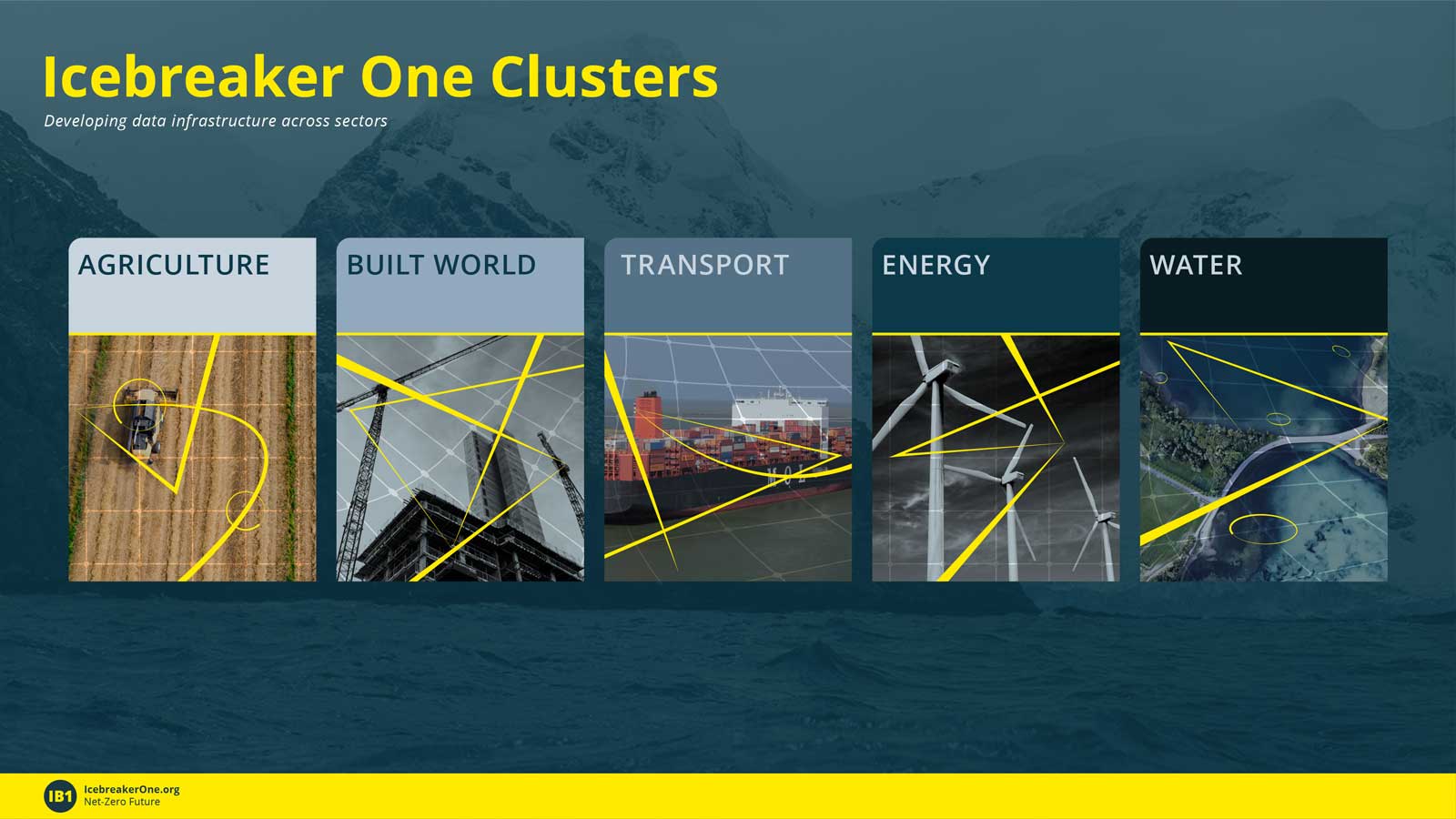Icebreaker One is bringing people together across Agriculture, the Built World, Energy, Transport and Water.
To address the systemic challenges we face, we have a number of cross-cutting innovation programmes around which we are gathering organisations from the private and public sectors.
Each programme is working on the Data Infrastructure needs to deliver net-zero for sectors, based on understanding the diverse user needs (business, government and social needs) of each area.
Cygnus is exploring how COVID economic recovery can be directed to drive net-zero behaviours at city and regional-levels across Europe. Open Energy is a public-private initiative modernising data sharing across the entire energy grid to deliver a net-zero, decentralised energy future. SERI is helping the insurance sector be a lever of change by developing Climate-Ready products: ensuring that net-zero solutions are protected and incentivised (e.g. some insurers won’t insure EV) as well as driving change so net-destructive industries are no longer financially viable.
- SERI — Standard for Environmental Risk and Insurance
- Open Energy — an open energy ecosystem that works for everyone
- Cygnus — determining how we are going to finance a net-zero COVID-19 recovery
Bridging the data gaps between policy and finance
“There is no ‘should’ in financial markets” , Ben Cotton
Mobilising capital and transforming behaviours by creating a pro-active culture of risk-informed decisions will have benefits for many:
- For infrastructure owners, the opportunity is to better prepare for disasters and to have greater transparency of the systemic, nonlinear risks being faced.
- For investors, the opportunity is to actively manage portfolio risk exposure and to transform potential losses into sustainable returns.
- For insurers, the opportunity is to provide a new class of insurance combined with market standard risk transparency and openness and to create new risk-informed investment opportunities.
- For policy-makers, the opportunity is to ensure that infrastructure investment contributes to reduced physical risk, help increase marketplace resilience by actively managing transitional risk, and address the social risks of the climate crisis, including risks of climate-induced mass-migration.
- For citizens, the opportunity is to develop sustainable communities which are resilient to disasters and reduce post-disaster migration to cities.
- For National Disaster Management Authorities (NDMA), the opportunity is to accurately model and understand the risks faced, including systemic and cascading risks, and to better prepare for, or prevent, the loss of lives, livelihoods and disruption to homes and businesses.
- For urban planners, the opportunity is to create sustainable cities which are resilient to shocks and stresses and enable citizens and businesses to thrive in the context of non-linear systemic disruptions.

